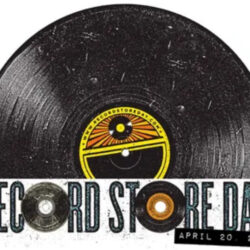It’s the time of year for saving money!

So this guy comes up to me and says, “Hi Roger, I’ve just
designed this new thing and I’d appreciate it if you’d listen to it and tell me
what you think.” I’m happy to help him out, of course, but how can I? Can I
take his “thing”, whatever it may be, and just go listen to it as he asks? Of
course not: Whether it’s a new speaker or a new source product – one end of the
chain or the other – the only way I can actually listen to anything at all is
as part of a complete system, played in the acoustical environment of a
listening room, or over headphones, and even they have their own acoustical
environment issues.
And that’s the problem.
Because I can never isolate any one thing that I’m listening
to, I can never really tell which part of what I hear or don’t hear can be
blamed-on or credited-to which part of the chain. I can never even really tell
where the chain starts. Is it the
original “live” performance? Maybe not: In our modern multi-track world, there
may never have been an original “live” performance; instead the music may
have been recorded just a couple-out-of-who-knows-how-many-total tracks at a
time, with, at first, just a couple of the musicians playing (probably a
“rhythm track”),and then other performers may have been added, another couple
at a time, with each new batch of performers listening to the performances of
all of the previous ones through headphones as they lay down their own couple
of tracks, and with the whole thing finally being put together later as a pastiche
by the engineer, the producer.
Even if there was a “live” performance, I’m CERTAINLY not
listening to it, and I might not even be listening to an “original” or a
facsimile of an “original” recording: Most recordings receive some mastering. Depending on what’s been done to it, I may or
may not like the result, and the odds are that I will never know who did what
to it, or why.
What all that means is that even before it gets to my system,
the music that I’m going to use to test other things with and judge their
ability to convey an impression of reality may not, itself, be “real” at all.
That’s why I ALWAYS have to listen to multiple recordings and to “piece
together” my impressions, instead of
relying on any one recording, no matter how good it may seem.
Another reason for doing that is simply that even a perfect
recording done in a large hall won’t tell me about how well a system will
deliver small hall sound and ambience. That was the problem with the old
Dahlquist DQ10s. They did big hall BRILLIANTLY, but big hall was all they
did: Something about them caused even the most intimate small-club jazz
recordings to sound as if they had been taped in Carnegie Hall or on a stage at
the Astrodome!
What about female vocals? No matter how good the System is,
you’re not going to hear what one sounds like on it if there’s not one there!
There are other things, too, that, even if they ARE there, can
be deceiving: Like the “blattiness” of brass instruments, for example – that
hard, nasty, edge that’s so much a part of real brass sound, and that’s so very
difficult for many speakers to reproduce. When I first heard the original
Avalon Ascent speakers many years ago, I was absolutely ecstatic! They, for the
first time in all my experience, got it exactly right, and brass instruments –
whether singly or in chorus – came off absolutely real! The problem, as I found
out later, was that the blattiness I was so thrilled with came not from the
instruments or from the recordings, but from the speakers, themselves, and
EVERYTHING that was played on the Avalons had it, even the woodwinds and that
oh-so-elusive female vocal.
So what does all this mean? Well, in the first place, even
though everybody loves to play “reviewer” and comment — hopefully with some
degree of knowledge and insight — on the things that make up or contribute to
our hobby, it’s not all that easy: For one thing, unless you listen to ALL of
what the thing you want to comment on can do, you really (as witness my initial
glee with the Avalons) shouldn’t comment at all; and for another, because it’s
hard to tell what part of the System (or even the program material) you’re
commenting on is the source of whatever it is that you that you find pleasing
or otherwise, it’s hard to know that what you’re saying is true and applicable.
Is there a solution to this problem? I’ll have more to say in
the second half of this article.





